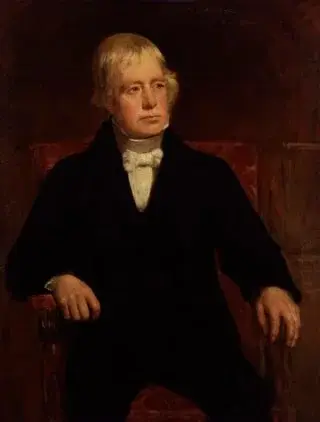Biography of Sir Walter Scott

| date | place | |
|---|---|---|
| born | August 15, 1771 | Edinburgh |
| died | September 21, 1832 | Abbotsford, Scotland |
Sir Walter Scott, born in Edinburgh, Scotland, in 1771, was a prolific Scottish novelist, poet, historian, and biographer, widely regarded as the inventor and master of the historical novel. His upbringing immersed him in Scottish heritage and literature, fostering a deep appreciation for his country's history and culture. Initially trained in law, Scott's true passion lay in literature, particularly in poetry and historical narratives. He gained early recognition for his translations of German Romantic ballads and his own collections of Scottish border ballads. Scott's poetic romances, such as "The Lay of the Last Minstrel" and "The Lady of the Lake," propelled him to literary fame in the early 19th century. However, it was his groundbreaking novel "Waverley," published anonymously in 1814, that solidified his reputation as a master storyteller. Set during the Jacobite rebellion of 1745, "Waverley" marked the beginning of Scott's celebrated series of historical novels, collectively known as the "Waverley" novels. Scott's novels, characterized by vivid characters, rich dialogue, and meticulously researched historical settings, captivated readers and established him as one of the leading literary figures of his time. His works spanned various periods of history, from medieval England in "Ivanhoe" to 15th-century France in "Quentin Durward." Despite his literary success, Scott faced financial difficulties due to his involvement in publishing ventures and extravagant spending on his estate at Abbotsford. To repay his debts, he embarked on a relentless writing schedule, producing numerous novels at a rapid pace. Scott's contributions to the historical novel genre were groundbreaking, influencing generations of writers worldwide. His legacy as a literary pioneer and chronicler of Scottish history remains enduring, ensuring his place as a towering figure in English literature.
Feel free to be first to leave comment.